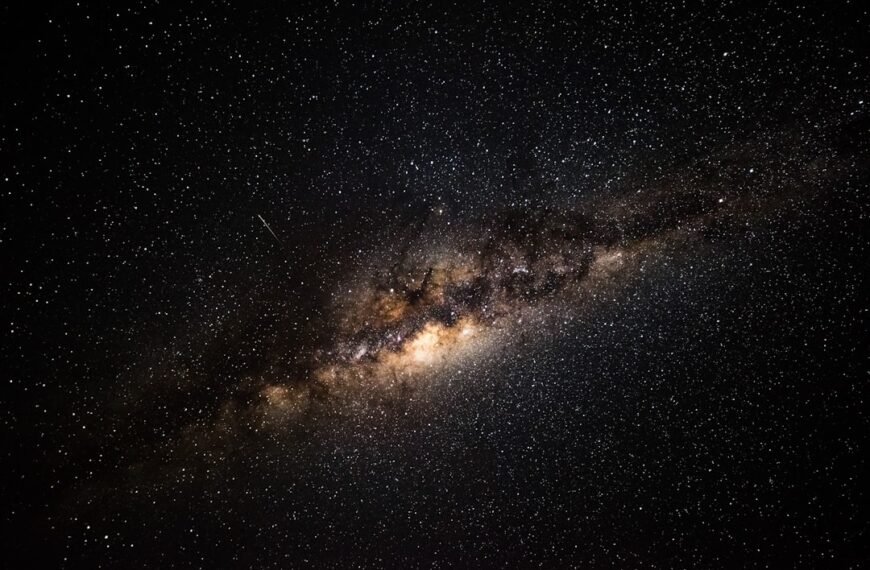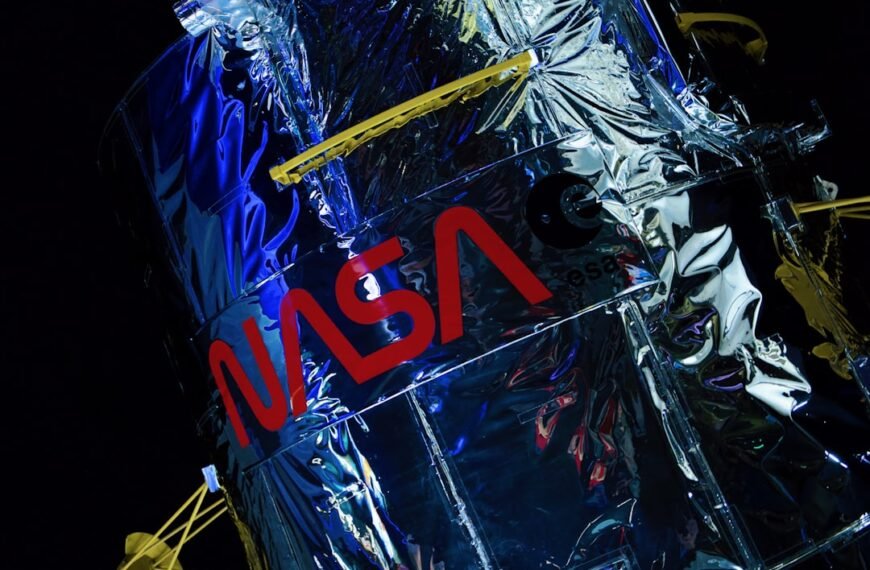Astronaut deaths in space raise complex issues: protocols for handling bodies, ethical concerns, psychological impact, and legal challenges.
Key Takeaways 📝
- Procedural Preparedness: Space agencies, particularly NASA, have established comprehensive protocols for handling astronaut deaths, ensuring dignity and respect while maintaining mission integrity.
- Surprising Logistics: In Low Earth Orbit missions, deceased bodies can be preserved and returned to Earth within hours, while deep space missions may require storage for months or years due to the impracticality of immediate retrieval.
- Ethical Dilemmas: The challenges of burial on extraterrestrial bodies raise significant ethical concerns, including contamination risks and the need to respect cultural beliefs surrounding death.
- Innovative Alternatives: Space agencies are exploring environmentally friendly disposal methods like promession, which freeze-dries bodies for efficient storage, highlighting the need for sustainable practices in space travel.
- Psychological Impact: The emotional toll on surviving crew members can be profound, necessitating strong support systems both in space and back on Earth to help them cope with the loss of a colleague.
Space—the final frontier. It’s a realm that captures our imagination and pushes the boundaries of human capability. But with great exploration comes significant risks, including the possibility that an astronaut might die in space. This eventuality, while rare, raises questions about procedures, ethics, and the practicalities of dealing with death so far from Earth’s comforting gravity. Let’s delve into this complex topic to understand what happens if someone dies in space, unearthing the protocols, implications, and human elements involved.

Introduction to What Happens If Someone Dies in Space?
Imagine floating in the vastness of space, surrounded by the silent beauty of the cosmos. It’s a dream for many, but what if tragedy strikes? The death of an astronaut in space isn’t just a storyline for science fiction but a real challenge that space agencies must be prepared for as we push further into the universe. This blog post will guide you through the procedures, ethical considerations, and psychological impacts that follow such an event.
The Immediate Effects of Death in Space
Understanding the Vacuum of Space
Space is a harsh environment, and the vacuum it presents is unforgiving. If an astronaut were exposed to space without a suit, it would be an almost instantaneous death. The lack of air pressure causes bodily fluids to boil, leading to death by asphyxiation and decompression. Fortunately, astronauts wear advanced spacesuits designed to protect them from these elements.
The Role of Spacesuits
Spacesuits act as a mini-environment, providing air, pressure, and temperature regulation. However, they can only sustain life for so long. In the event of a fatality, the suit becomes the first line of preservation, keeping the body intact until further measures can be taken.
Handling the Body in Space
Low Earth Orbit (LEO) Missions
In LEO missions, such as those aboard the International Space Station (ISS), protocols are in place to return the body to Earth quickly—often within a matter of hours or days. The deceased can be stored in a makeshift morgue within the spacecraft, where temperatures are controlled to slow decomposition.
Lunar Missions
On lunar missions, the proximity to Earth still allows for relatively quick retrieval. The protocols ensure that the deceased is treated with respect, with NASA having plans to return the body within a few days.
Mars and Deep Space Missions
Missions to Mars or beyond present a more daunting challenge. Given the great distance, the immediate return of a body is impractical. Here, preservation becomes key. Bodies may need to be stored for months or even years, requiring specialized storage solutions to maintain stability during the long journey home.
The Procedural Protocols
Established Protocols by NASA
NASA has developed comprehensive protocols for handling deaths in space. These include communication strategies with Earth, securing the body, and psychological support for the crew. The aim is to maintain the dignity of the deceased while ensuring the mission’s continuity.
International Space Agencies’ Approaches
Different space agencies have their own procedures, often aligned with international guidelines. Collaboration is crucial, as the ISS, for example, is a joint effort involving multiple countries.
Disposal Options for Human Remains
The Feasibility of Cremation
Cremation in space is not currently feasible. The energy required would significantly deplete resources, and the process could pose risks to the spacecraft and crew.
Burial on Extraterrestrial Bodies
Burying a body on Mars or the Moon presents contamination concerns. Earth-based bacteria could potentially alter the ecosystem of these celestial bodies, violating planetary protection protocols.
Innovative Alternatives
NASA and other agencies have explored alternative methods such as promession—a process of freeze-drying and vibrating the body into a fine dust. This approach is space-efficient and environmentally friendly, making it a potential solution for long-duration missions.
Legal Implications of Death in Space
Jurisdictional Challenges
The legal landscape of space is complicated. Jurisdiction over a deceased astronaut can depend on their nationality and the location of the spacecraft. This raises questions about which laws apply and who is responsible for the body.
International Treaties and Space Law
International treaties, like the Outer Space Treaty, provide some guidance but are often vague regarding human remains. As space travel becomes more common, these laws will need to evolve to address new scenarios.
Psychological Impact on Crew Members

Coping Mechanisms for Astronauts
The psychological toll on the surviving crew can be significant. Astronauts undergo extensive training to prepare for emergencies, but losing a colleague in space is a unique challenge. Counseling and support from Earth are crucial to help them process the loss.
Support Systems on Earth
Support extends to the families of the deceased as well. Space agencies work to provide emotional and logistical support, ensuring that the families’ wishes are respected in handling the remains.
Ethical Considerations in Space Burial
Respecting the Deceased
The dignity of the deceased is paramount. Ethical considerations involve respecting cultural and religious beliefs while adhering to practical constraints of space travel.
Environmental Concerns
The potential impact on extraterrestrial environments must be considered. Ensuring that human remains do not harm other worlds is a key ethical concern as we expand our reach into the cosmos.
The Future of Space Travel and Death
Technological Advancements
As technology advances, new methods for preserving and returning bodies from space will emerge. Innovations in spacecraft design, life support systems, and preservation techniques will shape future protocols.
Preparing for Longer Missions
With plans for missions to Mars and beyond, space agencies are working to develop comprehensive strategies for handling death in space. This includes both technical solutions and preparing astronauts psychologically for the potential reality of loss.
Conclusion
The death of an astronaut in space is a sobering thought but one that must be addressed as space exploration continues to expand. From immediate protocols to long-term ethical considerations, space agencies are working diligently to prepare for such eventualities. As humans venture further into the cosmos, dealing with death in space will become an integral part of mission planning, ensuring that the dignity and respect for those who risk their lives for exploration are upheld.
FAQs
What happens to the body if an astronaut dies in space?
The body is typically preserved in a controlled environment within the spacecraft until it can be returned to Earth or handled according to mission protocols.
Can a body be buried on the Moon or Mars?
Currently, burial on the Moon or Mars is discouraged due to contamination risks. Instead, space agencies are exploring alternative methods like promession.
How do astronauts cope with the death of a colleague in space?
Astronauts receive psychological support from Earth, including counseling and communication with family members, to help them process the loss.
Are there legal regulations for handling deaths in space?
Yes, international treaties and national laws provide some guidance, but the legal framework is still evolving as space travel becomes more common.
What are the ethical considerations of disposing of human remains in space?
Ethical considerations include respecting the deceased’s cultural and religious beliefs, ensuring environmental protection of celestial bodies, and maintaining the dignity of the remains.
























